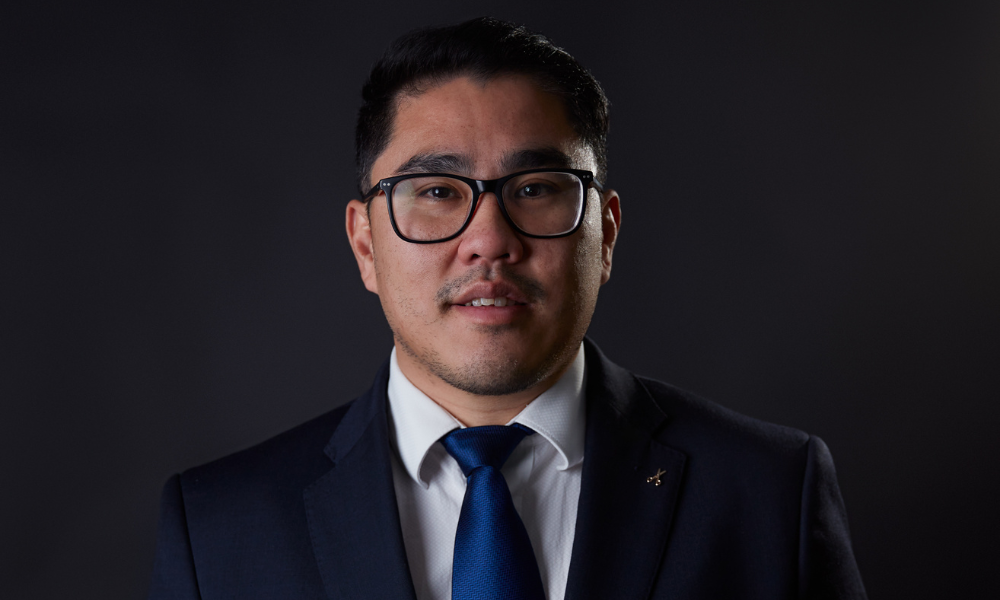
Bradley So discusses how he kept business immigration alive at a time of border closures

Bradley So entered the field of law as a stepping stone to become an entrepreneur – and that he did. According to Queen City Law, where So is a senior associate, he has pulled in over $400m in investments from his representation of several ultra-high net worth clients.
However, the pandemic years were far from smooth sailing for So, who manages the firm’s business immigration team. With the closure of borders everywhere came the expectation of less work, but his team managed to gain significant returns after diversifying the business immigration services. So attributes this success to being proactive and having “foresight on the economic environment…3-6 months down the line.”
In this interview, So talks about dealing with the ever-changing immigration policy, the business side of the practice, and his preference for value billing as a sustainable business model.
What made you choose a career in law, and what's your favourite part of the job?
I decided on law as I thought this would be a great platform for me to become an entrepreneur.
I enjoy the human aspect of being a lawyer. You know that your work has direct impact on people’s lives. You get to establish personal and business relationships with your peers and clients. This network of people helps you grow as a person and as lawyer.
What is going on at the firm? Are there any new programs and initiatives that you’re particularly interested in?
My team specialises in immigration – in particular business immigration. During COVID, Immigration NZ has made significant changes in the policy. We had to navigate through those changes and come up with immigration products to promote.
One of the big changes is the New Active Investor Plus category which became effective on September 19. I anticipate that this will bring about opportunities for our team. We are already working on a number of marketing initiatives and exemptions under the new policy. We hope that the Minister of Immigration will accept our private equity initiative that will have a significant impact for NZ.
What tech-related initiatives adopted by the firm, if any, are you most excited about?
We are working towards streamlining our visa processing system in line with Immigration NZ.
What has been your proudest accomplishment in the last year or so? Or what’s the biggest lesson you learned in the past year and what advice can you give fellow lawyers about it?
COVID 19 allowed us to identify weaknesses in our business model. We had to adapt to the constant changes with the immigration policy. With the border being closed, our team initially expected a significant downturn of work. However, our team worked tirelessly to find opportunities within these changes. We diversified our services which generated significant returns. The outcome was that our team’s turnover grew by 30% compared to the previous year. We are now in a position to grow our team and have been lucky enough to find good talent that will help with our growth.
The biggest lesson in the past year is that you need to be proactive in managing your workflow. You need to diversify your skill set in a way that compliments your core skills. You need to have foresight on the economic environment and think 3 – 6 months down the line. Learn how to delegate work so you will be in a position to identify business opportunities for you and your team.
What should the profession focus more on?
Learn how to use technology to improve how we work and make our practice more profitable. Understanding the business side of the practice.
What are the challenges you expect in your practice, and in the business of law in general, going forward? What challenges are particularly pressing in the country’s legal industry?
The significant issue is finding talent. Shortages of staff is driving up the cost of operation. The increase in salary expectations are not aligned with the fees we can charge. For example, the salary of a legal executive has increased significantly but the legal fee that you can charge for conveyancing has not. Charging on an hourly basis is not a sustainable business model for small firms. I believe value billing is a far more sustainable business model.
What are you looking forward to the most in the coming year?
Doing business trips again.
If you were given an opportunity to spend a day with anyone (living or dead), who would it be and why?
Kobe Bryant – I respect his “Mamba Mentality.”